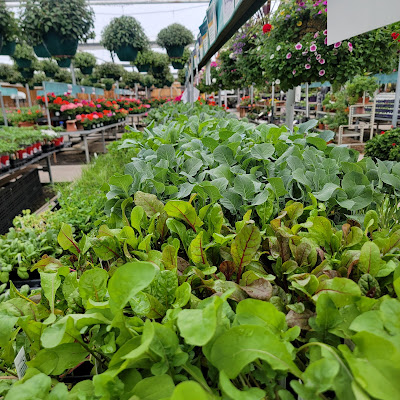Cool season crops are the early risers of the garden world—they thrive in the gentle embrace of spring’s cooler temperatures and often manage to withstand light frosts. These crops perform best when soil temperatures are between about 40°F and 70°F, a range that helps them develop textures and flavors that many gardeners prize.
Beets, broccoli, cabbage, kale, lettuce, peas, spinach, turnips like the cooler spring temperatures and can be planted from seed now, by direct sowing into your garden or raised bed.
You can also plant broccoli, cabbage, kale, spinach and many others from vegetable transplants, also known as starter plants. starts now, just be sure you harden them off before you plant them.
You’ll get the best harvest if you do these things. First, select a site that will receive at least six hours of direct sun each day. Check the soil to see if it’s workable. A quick way to check is to grab a fistful and squeeze it. If it crumbles the soil is ready to be worked.
Next, pick some bags of Earth Essentials Sheep, Peat and Compost,
Fox Farm Bush Doctor Coco-Loco
and Wiggle Worm™ earthworm castings.
Take the bags home, dump them into a pile, mix it all together and add to your vegetable garden or raised bed.
This is also a good time to add some organic fertilizer. Organic fertilizers will carry the OMRI seal on the bag. OMRI stands for Organic Material Review Institute.
Products with the OMRI seal have gone through rigorous testing to assure the ingredients are organic. Put some in the bottom of each row or planting hole, so the roots of your new plants can grow into it.
In addition to cool weather crops, onions and potatoes can also be planted now. Onions are planted from seed, sets and plants.
When it comes to planting potatoes, egg-sized seed potatoes can be planted whole. Larger seed potatoes can be cut in half or quartered and then planted. Make sure you have at least one set of "eyes" on each piece you plant. Always select certified seed potatoes. Supermarket potatoes are often treated to prevent them from sprouting.
While you're at it, plant some pansies and violas for color.













No comments:
Post a Comment